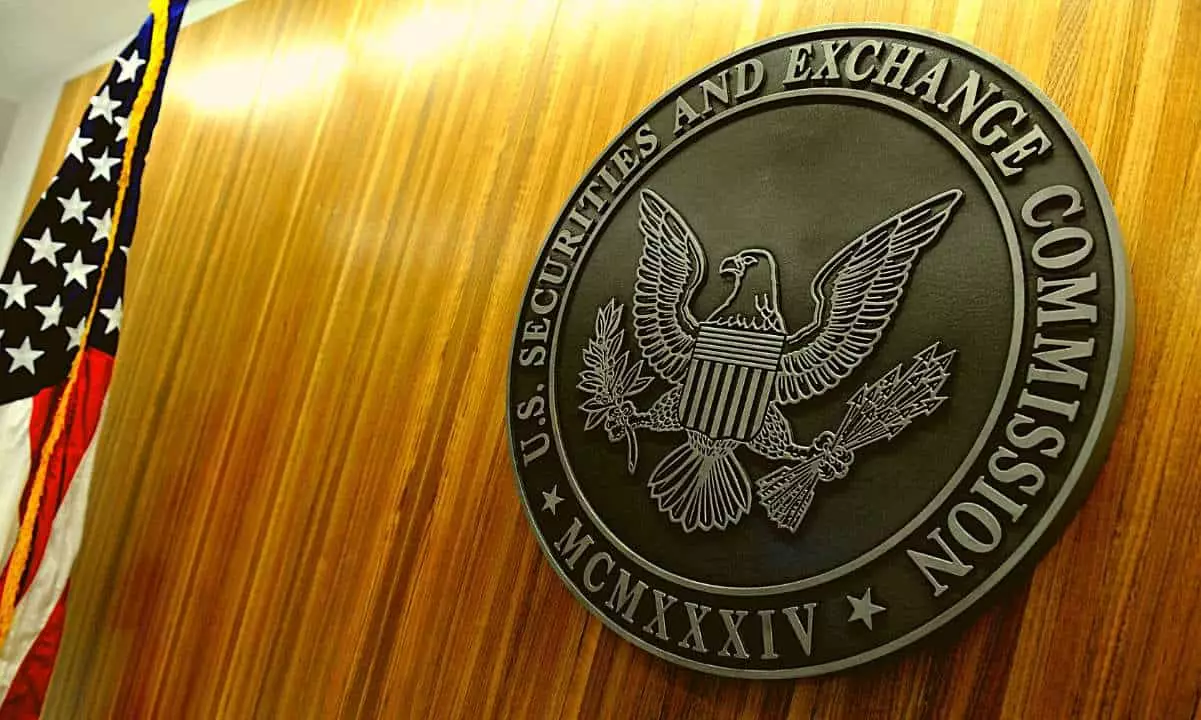In a notable turn of events within the blockchain gaming landscape, CyberKongz has found itself under the regulatory microscope of the U.S. Securities and Exchange Commission (SEC). On December 16, the NFT-focused gaming project announced that it had received a Wells Notice from the SEC, raising serious concerns about their integration of the ERC-20 token into their blockchain gaming framework. The implications of this scrutiny could resonate throughout the entire Web3 gaming community, raising pressing questions about regulatory clarity and the future of NFT-related projects.
A Wells Notice is not a formal charge but rather a communication that an agency like the SEC is contemplating enforcement action. It typically provides the recipient with a brief window—30 days in this case—to respond before any further legal steps are taken. The focus of the SEC’s concerns appears to revolve around whether the ERC-20 tokens utilized by CyberKongz can be distinguished from securities, particularly in light of their functionalities within gaming environments. The prospect of a regulatory framework that may not adequately differentiate between NFTs and traditional securities poses a fundamental challenge for creators and developers in the NFT space.
In light of these developments, the CyberKongz team took to social media platform X to express their disappointment with how the SEC has approached them. They conveyed a sense of frustration alongside a resolve to advocate for transparency and clarity in NFT regulations. The team underscored that the regulatory interactions began approximately two years ago, during which they maintained a low profile due to significant pressure from the SEC. For many companies in the blockchain industry, the SEC’s regulatory framework often feels arbitrary, creating a sense of instability that hampers innovation.
The CyberKongz statement points out that the core of the SEC’s concerns revolves around distinguishing between various forms of token operations. The implications of the SEC’s stance could indeed set a precedent that shapes the broader landscape of Web3 gaming, urging developers to tread carefully amid ambiguous guidelines.
Historical Context and Regulatory Landscape
The SEC’s scrutiny is not an isolated incident; rather, it aligns with a broader trend of increasing oversight across blockchain entities. Prominent companies such as Coinbase, Ripple, and OpenSea have faced similar inquiries, reflecting a regulatory climate that is grappling with the fast-evolving nature of blockchain technology. The recent notice issued to CyberKongz is merely the latest chapter in this ongoing narrative, one where the regulatory framework often lags behind technological evolution, potentially stifling creativity and innovation in the process.
More pressing, however, is the misconception that the SEC seemingly treats token migrations similarly to initial sales. The CyberKongz team has addressed this by asserting that their Genesis Kongz contract migration in April 2021 was not a primary sale but rather a necessary migration effort. The inability or unwillingness of regulators to draw distinctive lines between these concepts raises questions about their understanding of the mechanisms at play in the NFT market. As one CyberKongz representative aptly articulated, if the regulatory body struggles to distinguish these critical nuances, the potential for a coherent and constructive regulatory environment appears dim.
Future Implications and the Path Forward
The current predicament faced by CyberKongz could set significant precedents for NFTs and blockchain gaming as a whole. As the SEC considers its next steps in this case, the wider Web3 gaming industry watches closely, anxious for clarity on how tokens can operate without being classified as securities. The call for improved regulatory guidelines is not unique to CyberKongz but instead represents a collective cry from numerous players in the blockchain space.
CyberKongz’s commitment to contesting the SEC’s position signals a willingness to engage in a dialogue that could pave the way for clearer rules of engagement. By challenging the SEC, CyberKongz aims not only to defend its own interests but to advocate for a more approachable regulatory environment that could bolster innovation across the NFT sector.
As CyberKongz battles the SEC’s scrutiny, the most pressing takeaway is the urgent need for clear regulatory guidelines that protect both creators and consumers in the rapidly evolving NFT market. The future of blockchain applications hinges on the ability of regulatory bodies to adapt to new technologies, promoting a framework that fosters innovation rather than stifles it. For now, CyberKongz’s journey serves as a crucial case study in the complexities and challenges that developers in the NFT and gaming space must navigate in pursuit of a sustainable future.
















Leave a Reply